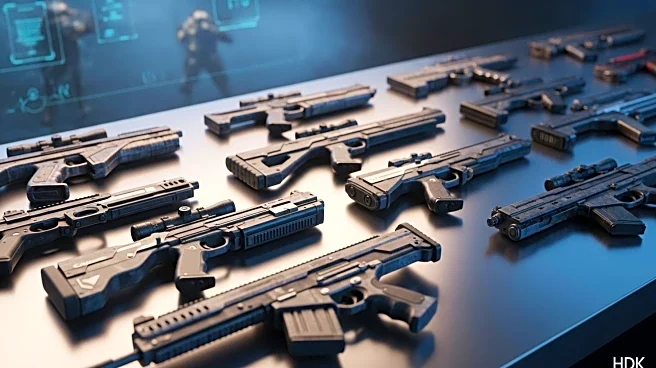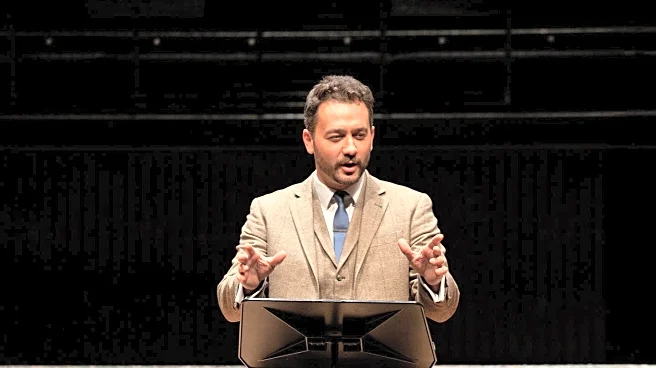What's Happening?
Battlefield 6 is set to launch with a focus on Open Weapons playlists, allowing players to select any weapon regardless of their class. This decision follows data from the beta phase, which showed that players in Open Weapons playlists performed slightly better, recording 0.2 more kills per hour in Conquest and 0.1 more kills per hour in Breakthrough compared to Closed Weapons playlists. Despite the preference for Open Weapons, the developer will still offer Closed Weapons playlists at launch for players who prefer the traditional setup where each class has unique weapons. The game is scheduled for release on October 10 for PS5, Xbox Series X|S, and PC.
Why It's Important?
The decision to prioritize Open Weapons playlists in Battlefield 6 could significantly impact player strategy and gameplay dynamics. By allowing players to choose any weapon, the game encourages more flexible and diverse combat styles, potentially leading to a more dynamic multiplayer experience. This shift may also influence the competitive landscape, as players adapt to new strategies that are not limited by class-specific weapons. The availability of Closed Weapons playlists ensures that traditionalists can still enjoy the class-based gameplay they are accustomed to, maintaining a balance between innovation and tradition.
What's Next?
As Battlefield 6 approaches its release date, players and critics will likely evaluate the impact of the Open Weapons playlists on gameplay and community engagement. The developer's decision to offer both Open and Closed Weapons playlists may lead to discussions on the future direction of the franchise and how it balances player preferences with innovation. Additionally, the game's launch could prompt feedback from the community, influencing potential updates or changes in future iterations of the series.
Beyond the Headlines
The introduction of Open Weapons playlists in Battlefield 6 may reflect broader trends in the gaming industry towards more customizable and player-driven experiences. This shift could encourage other developers to explore similar approaches, potentially leading to a reevaluation of traditional class-based systems in multiplayer games. The decision also highlights the importance of data-driven development, as player performance and preferences from the beta phase informed the game's final design.









